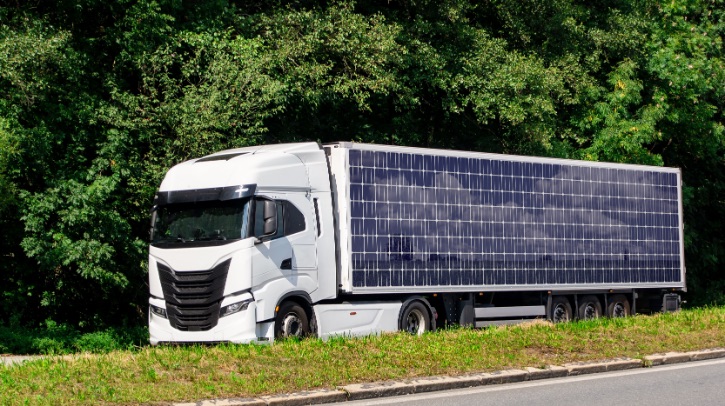Toyota Material Handling (UK) has released the Trends in Logistics 2024 report, which says that as fossil fuels are phased out and the electrification of road transportation and materials handling fleets gathers pace, energy storage will become one of the biggest challenges facing companies in the supply chain sector.
In its report, Toyota says that batteries capable of storing energy at very high capacities have a vital part to play in the UK’s future energy infrastructure. Potentially, Toyota contends, batteries may have to be able to store enough energy to run entire industrial sites or even to power cities or large urban conurbations.
“There is no doubt that high-capacity batteries will become a part of the overall energy landscape,” said Gary Ison, Toyota Material Handling’s product development manager. “Battery manufacturers and OEMs are in a race to develop high-capacity batteries that are not only capable of powering electric vehicles, such as forklifts, over a sustained period after the briefest recharging time, but are also big enough to store the energy generated by the sun and the wind to allow essential electricity supplies to be maintained at times when the sun isn’t shining and the wind isn’t blowing.”
Toyota’s Trends in Logistics 2024 reports that as battery technology is advancing rapidly with the potential of silicone, graphene and sodium batteries all being considered, there is growing optimism that developments in solid-state batteries could have a positive long-term impact.
One potential drawback of these solid-state batteries is that they are expensive and difficult to produce and are expected to remain so for some time, so it seems unlikely that they will be seen in common use soon.
There report also found a growing enthusiasm among operators of larger materials handling equipment fleets for alternative fuels such as hydrotreated vegetable oil (HVO), and hydrogen technology.
“For forklift truck users that have the benefit of an on-site hydrogen supply, hydrogen fuel cells can be refueled in just a few minutes and allow emission-free operation,” said Toyota’s Ison.
“Transitioning to new sustainable energy sources is one of the most significant issues facing the supply chain sector. And while the move from internal combustion engines to electric vehicles across the industry is advanced, concerns regarding grid capacity and availability of electricity generated by renewable sources haven’t yet disappeared.
“These concerns are causing some companies to delay investment in new technology and, ultimately, risk undermining efforts to turn the UK’s net-zero ambitions into reality.”


